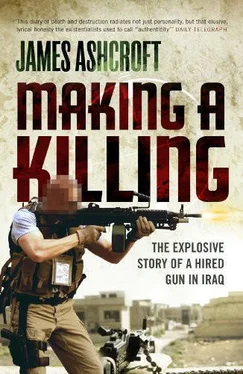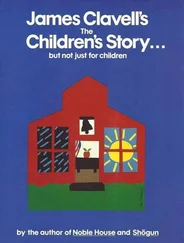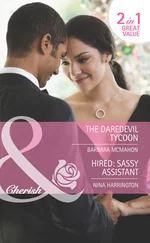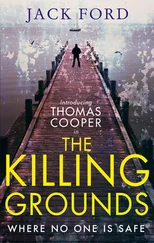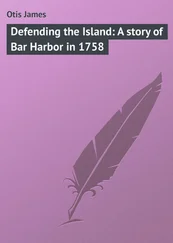He got the job.
The test run for John Hind consisted of a convoy of 65 oil tankers coming in from Kuwait. Convoys usually crossed the desert in relative safety, and were then hit in the densely populated zone around Latifiyah, about 30 miles south of Baghdad, where we were going to join them. Colonel Hind planned to park the tankers overnight at the water plant south of Latifiyah, then race into the city before dawn with us riding shotgun.
When we were tasked to PSD the outing, it was hard to know whether Adam Pascoe had taken his eye off the ball, or whether he thought this would curry favour with the CPA and win Spartan a regular convoy escort contract. In the field, when you know there’s a risk of being slotted, you make sure everyone in the unit knows why they are there and what they are trying to achieve. On this particular gig, he had not made this clear.
Hind was happy. Pascoe was happy. Sammy was thrilled because he had parleyed a bonus acting as an interpreter for the Americans. The first three interpreters Colonel Hind had tried had hung up the moment he mentioned the road to Latifiyah.
We set off in a three-car packet before first light, the safest time to travel. Most people weren’t out of bed, and if there were any bad guys waiting in ambush they would be fatigued from having been up all night. Lose one per cent of your attention and your shooting ability goes way off target.
John Hind was travelling in his own SUV with another officer who wore gold-rimmed glasses like John Lennon. Behind the wheel was a black sergeant named Harvey, a man with the same ponderous calm as Sergeant Willows, the guy who had led us into the Green Zone the first time we came under contact. We led the parade, Les driving, Seamus, Sammy and me. The Yaapies brought up the rear.
Latifiyah is in Al Qagaa province in the heart of bandit country just over half an hour’s drive from Baghdad. The town had a chemical complex and a water-softening regeneration plant. It was an ugly, earth-coloured place with narrow streets and a skyline broken by the domes of mosques and tall chimneys that were constantly pumping out fumes that gave the clouds a yellow tinge. The air was dry and tasted of chemicals. Seven Spanish intelligence agents had died on that road and the local CF fought running battles there virtually every day. Two private security guards from another company had been killed in Latifiyah the previous week.
We reached the plant at Latifiyah at 6.00 a.m. and couldn’t get in the main gate. The depot had come under attack during the night and unexploded rockets were strewn all over the highway.
We made a circle across the desert and entered the depot by the back door. ‘Another fucking cake and arse party,’ Les said as we turned into an enormous parking lot with the 65 tankers lined up with military exactitude.
A swarm of Iraqi and Egyptian drivers and the GIs from the infantry unit guarding the convoy were wandering around without any idea who was in charge. They had crossed the desert in the dark without any dramas, sat up all night in the water depot praying the rockets didn’t hit any of the tankers and now had no idea how they were going to get the convoy moving again.
Hind stepped out of his SUV, threw out his chest and strode about like Colonel Kilgore, the guy who loved the smell of napalm in Apocalypse Now . The soldiers were happy to salute the Colonel, but didn’t seem to recognise his authority to lead the convoy out of Latifiyah, although that was academic at this stage. Old, tarnished and clearly the property of Saddam Hussein, the unexploded rockets were everywhere: on the road, on the office roof, between the parked trucks.
While Colonel Hind strutted around showing everyone he was in charge, Seamus and Sergeant Harvey stood together watching the show like a pair of rugby props waiting to go into a scrum.
‘So, what are we waiting for?’ said Colonel Hind. ‘Let’s get the show on the road.’
‘We’d like to do that, sir, but we do have something of a problem,’ said the sergeant in charge of the infantry unit.
As he spoke, Les Trevellick started dealing with that problem using the stock tactic employed by the RUC (Royal Ulster Constabulary).
In Northern Ireland if the coppers can’t be bothered to wait for a bomb disposal officer to come and examine a suspicious item, they just give it a good boot. If it doesn’t go off, the patrol carries on. Les kicked the rocket lying across the main exit gate and it echoed back across the depot with a hollow ring. I went to join him.
‘Yes, that one’s clear,’ I announced.
We lifted it out of the way and continued along the highway repeating the process. Les doing the kicking, the pair of us doing the schlepping. We looked like heroes or nutters to the American GIs. As far as we could see, the rockets were just the propellant tubes and were missing their warheads. Seamus and Sergeant Harvey came to join us and together we cleared the road and the depot.
Les finally climbed up on the office roof to check the unexploded rocket wedged in the guttering. He called and I went to join him.
‘This one’s got its warhead on,’ he confided.
‘Let’s leave it, then,’ I replied, whispering.
We gave the all clear.
Seamus spoke to Sammy who in turn told the Arab drivers to saddle up.
Colonel Hind signed for the 65 tankers. When Hind told the American soldiers to return to their vehicles, they looked for Seamus’s nod of the head before they did so. Seamus told them they should deploy the ten Humvees evenly among the trucks in packets of two. We would remain in a separate packet of three vehicles travelling up and down the length of the convoy.
The Arab truckers, jundhis they were called, were now jostling to be first through the main gate: the further back in the line the more dust you ate. They kept a wide berth around the rockets littering the rocks along the side of the road, the dust spiralling in the air and coating everything in grit. When the first thirty trucks had exited the depot we joined the caravan. As was all too often the case, we had no comms with the Humvee drivers. They had radios on their own secure frequencies and no spare handsets for us.
It was now getting on for 0700 hours. So much for our pre-dawn dash. There were a few private cars on the road but no sign of fedayeen. They had been hammering at the plant all night. It was gruelling work getting Saddam’s dead rockets to fire; we’d been in the same predicament on the range with his bullets. I imagined the bad guys were still at home sleeping. The tankers had arrived late and after the long drive across the desert, the insurgents would have expected the drivers to sit out the day drinking chai and smoking. A day on, a day off, was the normal work rate.
Les weaved around the tankers, turned and motored back again. We were 78 vehicles in all and covered two kilometres of road. We moved in our own dust storm, the wipers not clearing the windscreen but smearing a shit-brown arc over the glass. It was cold out there with a brisk wind. I was glad of my fleece and Kevlar vest. I was nursing my long, thumb flicking mechanically over the safety. We were twenty minutes into the journey and were just reaching the outskirts of Mahmudiya, a town about the same size as Latifiyah and just as dangerous.
‘Looks like Colonel Hind’s going to make his delivery without a drama,’ I said. ‘A nice quiet run.’
‘Shut the fuck up,’ said Seamus sourly. ‘I don’t believe you’ve just said the ‘‘Q’’ word.’
He had turned in his seat. As he was still speaking, there was an enormous explosion and a fireball like something out of the Bible rose into the air.
It was difficult with the dust obscuring our vision to see exactly what had happened but there was nothing wrong with our hearing. One of the tankers ahead of us went up like an atom bomb, like a sonic boom magnified a thousand times, and the sound reverberated to the rear of the convoy, almost bursting my eardrums. The tanker had probably been hit by an RPG and a massive column of flames and smoke rose into the sky. The driver was toast.
Читать дальше
